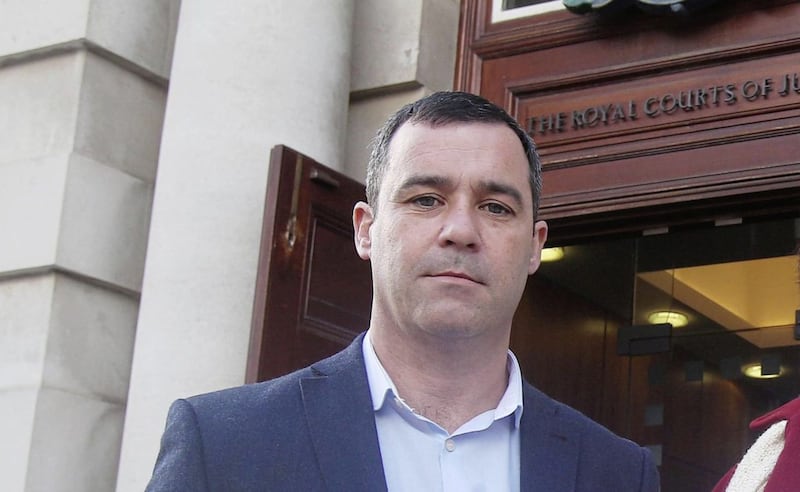A former RUC officer suspected of being a member of the Glenanne Gang will not be prosecuted for a series of gun and bomb attacks carried out in the 1970s.
The man was considered for prosecution after a file was submitted by the Police Ombudsman, which is currently carrying out an investigation into the gang.
Believed to have been responsible for up to 120 murders, the south Armagh based gang included members of the RUC, UDR and UVF.
Its activities are also the subject of a review currently being carried out by the Operation Kenova team.
The Public Prosecution Service (PPS) said on Wednesday that it determined that the “evidence was insufficient to provide a reasonable prospect of conviction”.
The former policeman, whose identity is known to The Irish News but has been referred to as Officer A by the PPS, had been suspected of involvement in 10 murders, including the those of Trevor Brecknell, Patrick Joseph Donnelly, and Michael Francis Donnelly during a gun and bomb attack at Donnelly’s Bar in Silverbridge, south Armagh, in December 1975.

Mr Brecknell’s son, Alan Brecknell, described the decision not to prosecute as “deeply disappointing but not surprising”.
“The RUC was well aware of the identities of those who carried out these attacks while at the same time making sure not to carry out anything resembling a proper investigation,” he said.
“Rarely has the phrase justice delayed is justice denied rung more true.”
Mr Brecknell’s solicitor Kevin Winters, of KRW Law, said: “I’ve seen cases taken in the past where the evidence could be categorised as challenging yet decisions were taken to prosecute.
“It’s disappointing that the same potentially challenging evidence in this investigation won’t now be put before a court.
“It would have been important for next of kin to see the quality of this intelligence based evidence play out before the courts.
“That is regrettable and calls for further probing.”
Eugene Reavey lost three brothers after a gun attack at their family home in Whitecross, south Armagh, in January 1976.
John Martin (24) and Brian Reavey (22) were shot dead while a third brother, Anthony (17), died several weeks later from his injuries.
Mr Reavey said he found out about the PPS decision from “a third party”.
“I am disappointed we didn’t get this officer into court,” he said.
“I think these kinds of cases should be decided by a judge or jury, rather than the PPS.”
Mr Reavey said he has been waiting for 48 years for answers, during which time the Historical Enquiries Team and Operation Kenova, formerly under the direction of PSNI chief constable Jon Boutcher, have examined the case.
“They all gave me the impression there was a case to answer and they had the right people and now the PPS has decided they are not going to prosecute,” he said.
Solicitor Darragh Mackin, of Phoenix Law, said: “We fully intend to lodge an urgent review asking for immediate reconsideration. Our client has made it clear, he will not hesitate to bring proceedings to quash the decision if necessary.”
Martin Hardy, PPS Assistant Director, said “the standard of proof required to obtain conviction in a criminal prosecution is high”.
“The prosecution must establish beyond a reasonable doubt, through admissible evidence, the commission of a criminal offence by the suspect,” he said.
“After careful consideration, it has been concluded that the available evidence is insufficient to provide a reasonable prospect of obtaining a conviction of Officer A for any offence.”
The senior PPS official said key evidence in the case consists of a small number of documentary records containing allegations made by another person that Officer A was involved in the gun and bomb attacks.
“These allegations are, however, not in the form of witness evidence,” he added.
“Therefore any prosecution of Officer A would require a hearsay application.”

